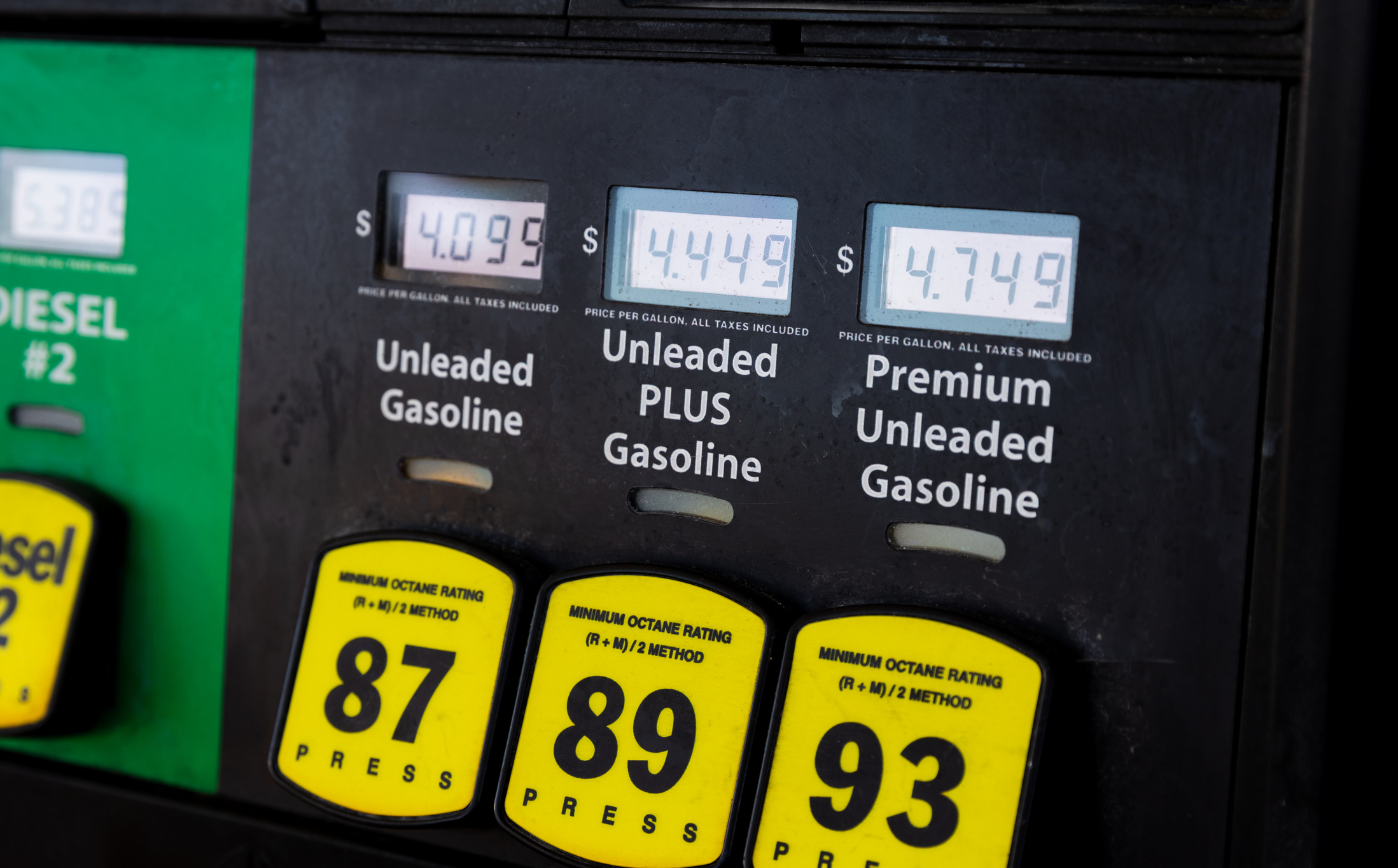The impact of Washington’s tax on CO2 emissions appears to have leveled off with data from the U.S Energy Information Administration (EIA) and the AAA telling slightly different stories. Overall, the impact appears to be similar to last week – about 24 cents per gallon.
 Gas price data from the EIA is released on Monday, and this week Washington’s gas prices have increased about 26 cents per gallon since the beginning of the year compared to other Western states (minus California). The price of Regular gasoline in Washington stayed flat, but declined about two cents per gallon in the rest of the West.
Gas price data from the EIA is released on Monday, and this week Washington’s gas prices have increased about 26 cents per gallon since the beginning of the year compared to other Western states (minus California). The price of Regular gasoline in Washington stayed flat, but declined about two cents per gallon in the rest of the West.
The AAA gas price data tell a slightly different story, with the difference between Washington and other states declining since last week. Compared to the rest of the West, Washington’s prices have increased about 22 cents per gallon since the beginning of the year. And while last week, Washington’s prices were about 25 cents per gallon more than the average of AAA’s prices for Oregon and Idaho, a big increase in Idaho’s prices in the last week means that our price is now 17 cents per gallon more than the average of those two states since the beginning of the year.
Using the EIA and AAA data for Washington compared to the West coast, the average increase is about 24 cents per gallon. If we include the Idaho/Oregon comparison, it goes down to about 22 cents per gallon. The large variability in Idaho is an reminder that there are other factors at play in driving prices, so all numbers should include a margin of error.
Twenty-four cents per gallon equates to about $31 per metric ton of CO2. This is also the price two people have reported to me that propane dealers are adding to their bill. Until the actual price of the tax is set in late February, that looks like the price most companies are settling on.
There are complaints from some in the agriculture and marine sectors that the CO2 tax is being applied to their fuel costs when it should not be. Both sectors were carved out in the legislation but there is confusion about how to apply those rules on the ground. One bill has already been introduced to develop a system to address these uncertainties.
This complexity is a problem with the cap-and-trade system. The rules were rushed into place and fuel distributors are still having to guess at the actual cost of the tax because the Department of Ecology isn’t holding the first auction for allowances until the end of February. Similarly, the challenges of implementing the complex system, like those being faced by the agricultural sector, should have been anticipated. A recent report comparing a flat tax on CO2 to a cap-and-trade system noted that it “requires an entirely new administrative agency to create and track allowances, hold auctions, and develop rules to prevent fraud and abuse." My guess is that we will see more implementation challenges in the upcoming months.




